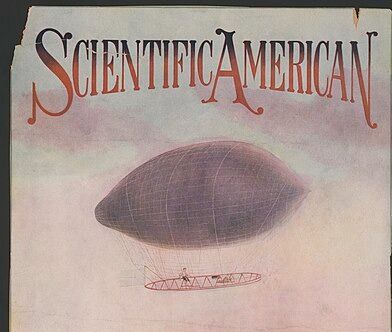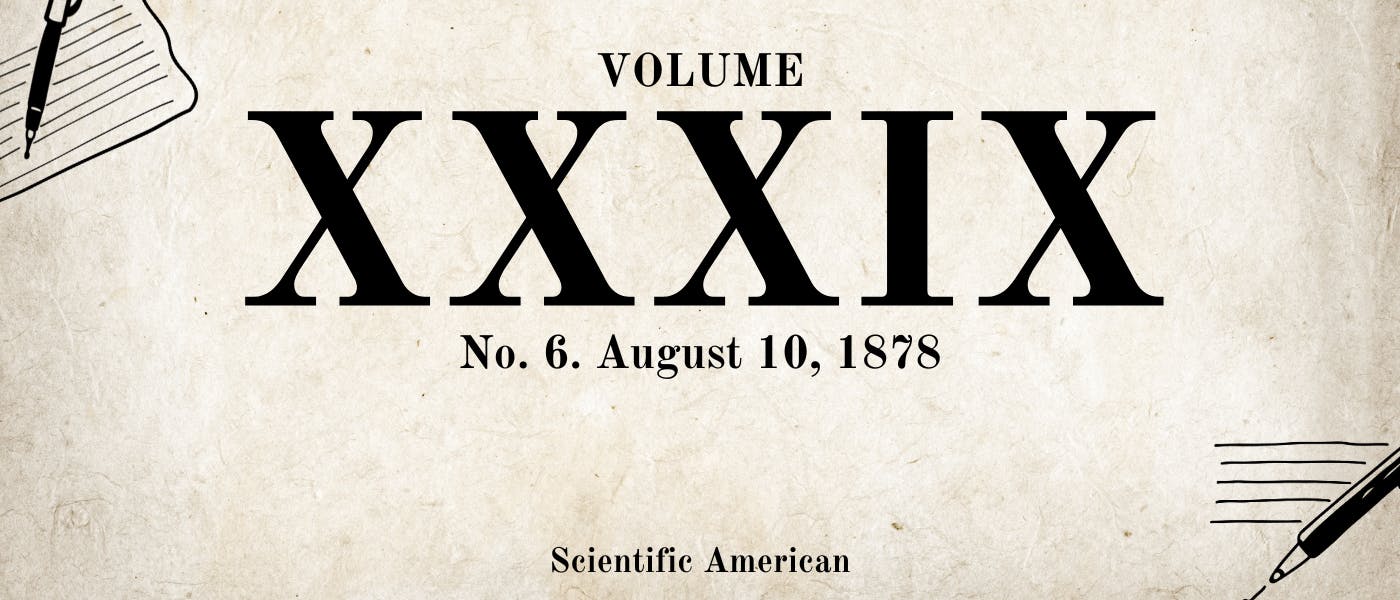Scientific American, Vol. XXXIX. No. 6. [New Series.], August 10, 1878, by Various, is part of the HackerNoon Books Series. You can jump to any chapter in this book here. Our Patent Law.
Our Patent Law.
To the Editor of the Scientific American:
While I cannot handle this subject with any master talent, nor afford to devote the time which should be given to so important a subject before expressing an opinion, yet I can less afford to keep quiet and allow shrewd avarice to manipulate or titled ignorance to legislate my property out of existence. "Property! There is no property in patents," I often hear said. And how about the invention covered by a patent? Is that property? A large majority of people may say no, and deny the justice of a patent law. On the contrary, I, as an inventor, think an invention is genuine property, and as such should be under the same protection in common law as all other property, instead of requiring a special law by which the people magnanimously grant me the privilege for a short time of using what was never theirs, what they never knew of until I brought it into existence.
But what is real property, and by what title is it held? Mother earth, from which we sprung, by which we exist, and to which we return, is, without question, real estate. How is it obtained; how held? History answers, By conquest, by subjugation. But these words, conquest and subjugation, have a more significant meaning than the spoiling of one people by another; they are the actual price of possession. He who, toiling, subjugates the soil, is undoubted owner of its production, by virtue of the highest blessing on record—"By the sweat of thy brow shalt thou obtain bread." And this principle is so far acknowledged that the laborer holds a lien on the product of his labor, even though the property belongs to another.
Mr. A has an unpromising piece of land on which he would like to raise corn. He analyzes the soil, experiments upon it chemically, reads up on the properties and components of corn, the effects of fertilizers and acids upon the soil, and makes himself a fool and laughing-stock generally among his neighbors because he steps out of the beaten track by which they have succeeded in making the ground barren. He does not have much success the first year, and is sympathizingly consoled with "I told you so." But he perseveres and wins the reputation of being "visionary" and "as stubborn as a mule." In the meantime he becomes more familiar with his subject, sees more clearly the requirements of the case, finds he must post himself more thoroughly in certain branches of science in order to conduct his experiments, wrestles with this obstacle and that, and finally discovers a fertilizer based on some natural law of rotation, and produces a crop of corn never before equaled. Now his neighbors come out with this very intelligent question, "How did you happen to think of it?" And they further very condescendingly remark, "That is a rousing crop; I guess I'll try the same thing myself. How did you say you mixed the stuff?" This man is the true conqueror. He has endured privation and scorn, fought obstacles, and in subduing them has eliminated a new principle in agriculture that is an engine of power to all generations. Shall his crops be his only reward? Shall they who laughed him to scorn step into his reward without sharing the labor that produced it?
This is a simile for thousands of inventions, only that the inventor is seldom situated to plant the corn on his own land and reap the harvest. Then which of you will say that he has not a just lien on every man's crop raised by his process for a per cent of the gains thereby? There is a bill before Congress favoring a periodical taxation of patents under the pretext of removing useless patents from the path of later inventors. Let me show you how one inventor looks at that. My neighbor has a vacant lot on which he is unable to build; but joined to mine it would increase the value of my property vastly. Now can't you legislate that old heap of rubbish into my possession somehow? Of course he is waiting for the rise of property around him to sell his lot well; but can't you make that appear unnatural, and that he is a dog in the manger? It is also said that sharpers get control of old patents and lay an embargo on legitimate business. I reply, first, no one could be damaged by the owner of a patent unless he infringed that owner's right; second, if he does infringe, it shows that said patent is valuable, otherwise he need not infringe; and if valuable why should not he pay for it? Mr. B, in the employ of Mr. C, watches the machine he uses, and spends his leisure hours in working out an improvement, which he patents and offers to C for sale; but as the invention is useless except as attached to C's machine, he thinks B can't help himself, and adopts the improvement without paying for it. When a few years have built up a great industry, and C is rich from his spoils, B steps in with a few friends at his back, incorporated especially to make C shell out.
Of course this is bad and ought to be legislated against. If it were not valuable C need not use it. It is not becoming to the Congress of a great nation to spend its time in legislating worthless patents out of existence. All such will die a natural death. And if there is sufficient worth in any patent to claim your consideration, the inventor is entitled to its price, whether he waits four years or fifteen for his pay.
I speak of myself, not as an individual, but as representing in this letter a class, without whose achievements America, in her proud length and breadth, could not to-day have been. For the last half of my past life, over twenty years, I have been an inventor. Schooled in adversity, accustomed to disappointment, sometimes successful, enjoying no luxuries but the conquest of obstacles, and often forced to simple pursuits to keep the pot boiling, yet I expect to spend the rest of my life inventing, feeling strong in the school of experience, and hoping for such prosperity as will enable me to work out some of the larger problems in view.
If those in power would really aid the inventor, let them increase his facilities for information. Circulate the Patent Office Gazette at one dollar a year, a nominal subscription to insure bona fide readers, and pay the balance out of the Patent Office surplus now accumulated. This both to educate and to save inventors from going over old ground, bringing more talent up to the standard of to-day. Lessen rather than increase Patent Office fees. Enable the Commissioner to give the strictest possible examination on every application for a patent, that when issued it shall bear a bona fide value, by retaining the most competent examiners at a salary adequate to keep them. Reduce the cumbrous machinery of patent litigation to about this text, in two headings: First, Is plaintiff the first inventor? Allow one month to find that out. If not disproved in that time, allow it. Second, Does defendant infringe? Allow one month to decide that. If not proven, discharge the case, with cost to plaintiff. If proved, cost and damage to be settled by defendant in thirty days.
The ability of wealthy corporations to absorb with impunity the product of all talent within their reach, and put off the day of reckoning until plaintiff is swallowed in cost, is the greatest present discouragement to inventors. Our patent law is now better than any amendment yet proposed will leave it. If you must tinker over it, remember all laws are for protection of the weak. The bulldog does not need law to take the bone from the spaniel. Just in proportion as you damage the patent law, you destroy the accomplishments and purpose of my life. Therefore I have spoken; so could a thousand more.
W. X. STEVENS.
East Brookfield, Mass.
About HackerNoon Book Series: We bring you the most important technical, scientific, and insightful public domain books.
This book is part of the public domain. Various (2013). Scientific American, Vol. XXXIX. No. 6. [New Series.], August 10, 1878. Urbana, Illinois: Project Gutenberg. Retrieved https://www.gutenberg.org/cache/epub/19406/pg19406-images.html
This eBook is for the use of anyone anywhere at no cost and with almost no restrictions whatsoever. You may copy it, give it away or re-use it under the terms of the Project Gutenberg License included with this eBook or online at www.gutenberg.org, located at https://www.gutenberg.org/policy/license.html

